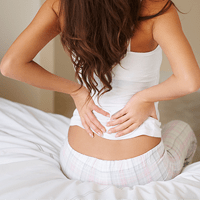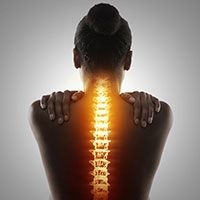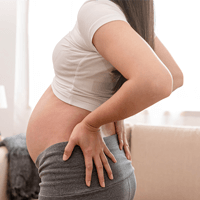Post-Menopausal Tendinopathy
During the menopause your body undergoes hormonal changes which affect the way that it operates. Declining hormone levels can affect mobility and flexibility and increase sensitivity to pain. Osteopathic treatment including Extracorporeal Shockwave Therapy can aid in the management of post-menopausal tendinopathy, helping you to maintain mobility and remain pain free.

Post-Menopausal Tendinopathy
Joint pain is one of the most commonly reported symptoms by menopausal and post-menopausal women. The causes of joint pain at this time can be difficult to diagnose as the term encompasses a range of conditions including osteoarthritis, but recent research suggests that the decline in oestrogen levels which occurs during menopause could be responsible for the increase in incidences of tendinopathy in post-menopausal woman.
What is Tendinopathy?
The word tendinopathy is used to describe two seperate processes of tendon damage; tendonitis and tendinosis. Tendonitis describes the inflammation of a tendon and is usually caused by an injury or repetitive action. Tendinosis refers to the break-down of the collagen fibres in the tendon. A diagnosis of Tendinopathy therefore refers to damage to the tendon which creates tendinosis which in term causes inflammation and pain (tendonitis).
Although tendinopathy due to injury or over-use can occur at any age, incidences of tendinopathy amongst women increase after the menopause due to decreasing levels of oestrogen.
The Importance of Oestrogen in Maintaining Tendon Health.
Tendons are rope like tissues made from collagen which attach muscle to bone. As the muscles in the body relax or tighten, the tendons and bones move.
The hormone oestrogen is a regulating factor in the metabolism of connective tissues such as bone, muscle and cartilage. It is also responsible for stimulating the formation of the collagen in tendons via special cells known as fibroblasts. Research suggests that as oestrogen is responsible for stimulating the production of collagen, as oestrogen levels decrease, so does the production of collagen. This makes joints less stable and more prone to damage.
Oestrogen is also responsible for protecting joints and reducing inflammation. The decrease in oestrogen levels during and after menopause can also lead to an increase in the levels of inflammation throughout the body.
Post-menopausal damage to tendons is therefore more likely due to a combination of decreased joint stability and increased levels of inflammation. Damanged tendons are slower to repair themselves because the lack of oestrogen slows collagen production.
How Can Osteopathy & Focused Shockwave Therapy Help Post-Menopausal Tendinopathy?
Osteopathy and Extracorporeal Focused Shockwave Therapy are a gentle way to support the body during and after the menopause. Treatment varies depending upon the individual but there are a number of osteopathic techniques which may be used to support muscles and ligaments and improve posture to minimise the likelihood of post-menopausal tendinopathy occurring.
In addition to traditional osteopathy, osteopath Helen How is also trained in the use of Extracorporeal Focused Shockwave Therapy (ESWT) and was one of the frst Osteopaths in Scotland to include the therapy as part of osteopathic treatment.
Focused Shockwave Therapy (ESWT) is a safe, non-invasive way of treating Tendinopathy. During the treatment a hand-held device used to deliver acoustic (sound) waves through the skin to the injured part of the body. The shockwave is able to pentrate deeply into the affected area, stimulating blood flow to facilitate deep tissue healing and removing inflammation while the shockwaves also assist in the stimulation of pro-collagen synthesis which enables tendon regeneration and repair.




